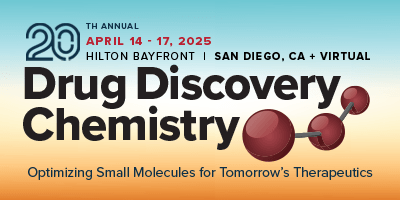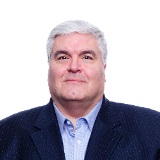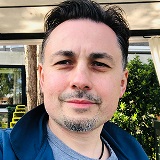2025년 디너 쇼트코스* (대면만)
Drug Discovery Chemistry의 쇼트코스는 교육적 및 상호 작용적이며, 특정 토픽에 관한 상세 정보를 Q&A 기회와 함께 제공하고 있습니다. 이 코스에서는 이 분야를 처음으로 접하는 사람이나 더 많이 배우고 싶은 사람을 위한 입문편을 포함하며, 메인 컨퍼런스 프레젠테이션에서는 시간이 허락하는 한, 많은 기술적 측면에 대해 설명하고 있습니다. 강사는 업계 및 학계로부터 섭외하며, 해당 분야의 권위자나 지도 경험자가 대부분입니다.
디너 쇼트코스는 4월 14일(월) 밤과 4월 16일(수) 밤에 개최되며, 대면 참가자를 대상으로 합니다.
*프리미엄 가격 또는 별도 등록 필요
2025년4월14일(월요일)오후 6:00 - 8:30
SC1: Protein Degraders: A Beyond Rule of Five Space and in vitro ADME Perspective
Detailed AgendaInstructors:
John Erve, PhD, President, Jerve Scientific Consulting
Stefanus Steyn, PhD, Research Fellow, Pharmacokinetics Dynamics & Metabolism, Pfizer
Topics to be Covered:
- Comparison of Rule of Five and Beyond Rule of Five space
- Importance of intramolecular hydrogen bonds for solubility and permeability
- Determining chameleonicity and its importance for PROTACs
- Transporters and potential drug-drug interactions (DDIs)
Who Should Attend:
Scientists in the field of proteolysis-targeting chimeras (PROTACs) who would like to deepen their understanding of these molecules and the physicochemical attributes that may contribute to their success as oral drugs. ADME scientists and medicinal chemists wishing to understand PROTACs from a drug safety and metabolism perspective. Graduate students and academic scientists interested in learning more about this rapidly developing new drug modality.
INSTRUCTOR BIOGRAPHIES:
 John Erve, PhD, President, Jerve Scientific Consulting
John Erve, PhD, President, Jerve Scientific Consulting
 Stefanus Steyn, PhD, Research Fellow, Pharmacokinetics Dynamics & Metabolism, Pfizer
Stefanus Steyn, PhD, Research Fellow, Pharmacokinetics Dynamics & Metabolism, Pfizer
SC2: Fragment-Based Drug Design: Advancing Tools and Technologies
Detailed AgendaInstructors:
Ben J. Davis, PhD, Research Fellow, Biology, Vernalis R&D Ltd.
Daniel A. Erlanson, PhD, Chief Innovation Officer, Innovation and Discovery, Frontier Medicines Corporation
Topics to be Covered:
- Pros and cons of fragment-based approaches
- What makes a good fragment; properties of a good fragment library
- Finding, validating, and characterizing low-affinity ligands
- The importance of using orthogonal screening methods
- What to do with a fragment-growing, linking, and more
INSTRUCTOR BIOGRAPHIES:
 Ben J. Davis, PhD, Research Fellow, Biology, Vernalis R&D Ltd.
Ben J. Davis, PhD, Research Fellow, Biology, Vernalis R&D Ltd.
 Daniel A. Erlanson, PhD, Chief Innovation Officer, Innovation and Discovery, Frontier Medicines Corporation
Daniel A. Erlanson, PhD, Chief Innovation Officer, Innovation and Discovery, Frontier Medicines Corporation
SC3: Fundamentals of Generative AI for Drug Discovery
Detailed AgendaInstructors:
Parthiban Srinivasan, PhD, Professor and Director, Centre for AI in Medicine, Vinayaka Mission's Research Foundation, India
Petrina Kamya, PhD, Global Head of AI Platforms & Vice President, Insilico Medicine; President, Insilico Medicine Canada
Topics to be Covered:
- Demystifying generative AI concepts and key terminologies
- How predictive and generative AI works in de novo molecular design
- Overview of large language models (LLMs)
- Prompt engineering, RAG, and fine-tuning for biopharma-specific LLMs
- Leveraging language models in drug discovery research with case studies
Who Should Attend:
INSTRUCTOR BIOGRAPHIES:
 Parthiban Srinivasan, PhD, Professor and Director, Centre for AI in Medicine, Vinayaka Mission's Research Foundation, India
Parthiban Srinivasan, PhD, Professor and Director, Centre for AI in Medicine, Vinayaka Mission's Research Foundation, India
 Petrina Kamya, PhD, Global Head of AI Platforms & Vice President, Insilico Medicine; President, Insilico Medicine Canada
Petrina Kamya, PhD, Global Head of AI Platforms & Vice President, Insilico Medicine; President, Insilico Medicine Canada
SC4: Detecting Target Engagement: Technology Innovations
Detailed AgendaInstructors:
Hans-Peter N. Biemann, PhD, Distinguished Scientist, Integrated Drug Discovery, Sanofi
Jonathan Brooks, Principal Scientist, Inflammation & Remodeling, Pfizer Inc.
Can Ozbal, PhD, CEO, Momentum Biotechnologies
Elmar Nurmemmedov, PhD, MBA, Co-Founder & CEO, CellarisBio
Topics to be Covered:
(1) Fluorescence Resonance Energy Transfer (FRET) & Cellular Target Engagement by Elmar Nurmemmedov, CellarisBio
- Why measuring cellular target engagement early in drug discovery is important for challenging drug targets
- Pros and cons of fluorescence-based Micro-Tag cellular target engagement methods and comparison to other cell target engagement methods
- Case studies and novel applications of fluorescence-based Micro-Tag cellular target engagement method
(2) Affinity Selection Mass Spectrometry (ASMS) by Hans Biemann, Sanofi and Can Ozbal, Momentum Bio
- Overview of ASMS as a biophysical assay technique
- ASMS for highthroughput screening
- ASMS for compound binding studies
- Sanofi case studies
(3) SPR Microscopy for Membrane Proteins by Jonathan Brooks, Pfizer
- Introduction to SPRm and ligand tracer platforms
- Examples of SPRm applied to cell binding kinetics
- Cell attachment strategies for SPRm
- Working with live and fixed cells
- Binding of large v. small molecules
INSTRUCTOR BIOGRAPHIES:
 Hans-Peter N. Biemann, PhD, Distinguished Scientist, Integrated Drug Discovery, Sanofi
Hans-Peter N. Biemann, PhD, Distinguished Scientist, Integrated Drug Discovery, Sanofi
 Jonathan Brooks, Principal Scientist, Inflammation & Remodeling, Pfizer Inc.
Jonathan Brooks, Principal Scientist, Inflammation & Remodeling, Pfizer Inc.
2025년4월16일(수요일)오후 6:15 - 8:45
SC5: Protein Degraders: An in vivo ADME and Safety Perspective
Detailed AgendaInstructors:
Donglu Zhang, PhD, Senior Fellow, DMPK, Genentech Inc.
John Erve, PhD, President, Jerve Scientific Consulting
Topics to be Covered:
- Measuring ADME properties in vitro and in vivo and specific challenges
- Metabolism of PROTACs and influence of linker length on stability
- Case study of optimizing a PROTAC
- Safety issues unique to PROTACs
- Circadian rhythm considerations
Who Should Attend:
INSTRUCTOR BIOGRAPHIES:
 Donglu Zhang, PhD, Senior Fellow, DMPK, Genentech Inc.
Donglu Zhang, PhD, Senior Fellow, DMPK, Genentech Inc.
 John Erve, PhD, President, Jerve Scientific Consulting
John Erve, PhD, President, Jerve Scientific Consulting
SC6: Chemical Biology for Covalent Drug Discovery, Phenotypic Screening, and Target Deconvolution
Detailed AgendaInstructors:
Paul Brennan, PhD, Professor, Nuffield Department of Medicine, University of Oxford
Brent Martin, PhD, Vice President, Chemical Biology, Odyssey Therapeutics
Angelo Andres, Senior Scientist, Chemical Biology, AstraZeneca Pharmaceuticals
Topics to be Covered:
- Chemical biology assays and probes for target engagement and mechanistic understanding
- Chemoproteomic methods and reagents for covalent ligand drug discovery
- Comparison of various chemical biology approaches (mass spectrometry, affinity-bead methods, proximity labeling proteomics, and more)
- Use of quantitative mass spectrometry-based proteomics and global proteomics
- Discovery of chemical probes
- Constructing annotated chemogenomic compound sets for phenotypic screening
- Cysteine profiling and covalent inhibitors for target discovery and occupancy
- Design and screening of chemogenomics libraries for target identification
- Case studies highlighting use of proteomics for target engagement and deconvolution
INSTRUCTOR BIOGRAPHIES:
 Paul Brennan, PhD, Professor, Nuffield Department of Medicine, University of Oxford
Paul Brennan, PhD, Professor, Nuffield Department of Medicine, University of Oxford
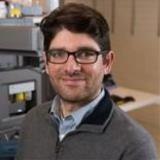 Brent Martin, PhD, Vice President, Chemical Biology, Odyssey Therapeutics
Brent Martin, PhD, Vice President, Chemical Biology, Odyssey Therapeutics
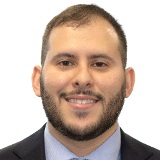 Angelo Andres, Senior Scientist, Chemical Biology, AstraZeneca Pharmaceuticals
Angelo Andres, Senior Scientist, Chemical Biology, AstraZeneca Pharmaceuticals
SC7: AI Applications in Drug Development: Strategies for Innovation and Integration
Detailed AgendaInstructor:
Arvind Rao, PhD, Associate Professor, Department of Computational Medicine and Bioinformatics, University of Michigan
Topics to be Covered:
- AI applications in target discovery and predictive diagnostics
- Machine learning strategies for patient stratification and personalized medicine
- Frameworks for scaling AI initiatives across pharmaceutical organizations
- Critical considerations for implementing and managing AI projects
- Ethical implications and emerging trends in AI-driven drug development
Who Should Attend:
INSTRUCTOR BIOGRAPHIES:
 Arvind Rao, PhD, Associate Professor, Department of Computational Medicine and Bioinformatics, University of Michigan
Arvind Rao, PhD, Associate Professor, Department of Computational Medicine and Bioinformatics, University of Michigan
SC8: Principles of Drug Design: Ligand-Receptor Interactions and More
Detailed AgendaInstructor:
Maricel Torrent, PhD, Principal Research Scientist, Computational Drug Discovery, AbbVie, Inc.
Topics to be Covered:
- Medicinal chemistry and structure-based drug design principles
- Interpretation of atomic-level protein X-ray and modeled structures of binding mode
- Understanding the relative amounts of potency gain from different types of interactions
- Case studies to illustrate all the design strategies
INSTRUCTOR BIOGRAPHIES:
 Maricel Torrent, PhD, Principal Research Scientist, Computational Drug Discovery, AbbVie, Inc.
Maricel Torrent, PhD, Principal Research Scientist, Computational Drug Discovery, AbbVie, Inc.
SC9: DNA-Encoded Libraries
Detailed AgendaInstructors:
Svetlana Belyanskaya, PhD, Co-Founder, DEL Source; former Vice President, Biology, Anagenex
Ghotas Evindar, PhD, Co-Founder & President, DEL Source; former DEL Platform Senior Manager and Group Leader, GSK
Topics to be Covered:
- Introduction to DNA-encoded libraries
- Pros and cons of using DNA-encoded chemical libraries
- Structure of the DNA coding region and how it has evolved over time
- Affinity-based selection strategy and how it guides hit-picking
- Data analysis and the decision-making logic in hit confirmation
- Introduction to and benefits of one-bead, one-compound (OBOC) DNA-encoded libraries
INSTRUCTOR BIOGRAPHIES:
 Svetlana Belyanskaya, PhD, Co-Founder, DEL Source; former Vice President, Biology, Anagenex
Svetlana Belyanskaya, PhD, Co-Founder, DEL Source; former Vice President, Biology, Anagenex
 Ghotas Evindar, PhD, Co-Founder & President, DEL Source; former DEL Platform Senior Manager and Group Leader, GSK
Ghotas Evindar, PhD, Co-Founder & President, DEL Source; former DEL Platform Senior Manager and Group Leader, GSK
* 주최측 사정에 따라 사전 예고없이 프로그램이 변경될 수 있습니다.
2025년 4월 14일

분해제·분자 접착제 : 종양학 너머

공유결합·근접 유도 기반 치료

생성 AI와 예측 모델링

여성 건강용 Drug Discovery

RNA 수식 저분자 의약품
2025년 4월 15 - 16일

분해제·분자 접착제 - 파트 1

프래그먼트 기반 Drug Discovery(FBDD)

조기 Drug Discovery용 AI/ML - 파트 1

GLP1·경구 펩티드

발견 화학의 신규 기술
2025년 4월 16 - 17일

분해제·분자 접착제 - 파트 2

단백질간 상호작용(PPI)

조기 Drug Discovery용 AI/ML - 파트 2

DEL(DNA-Encoded Library)

전사 인자·조절 인자의 약물 투여
